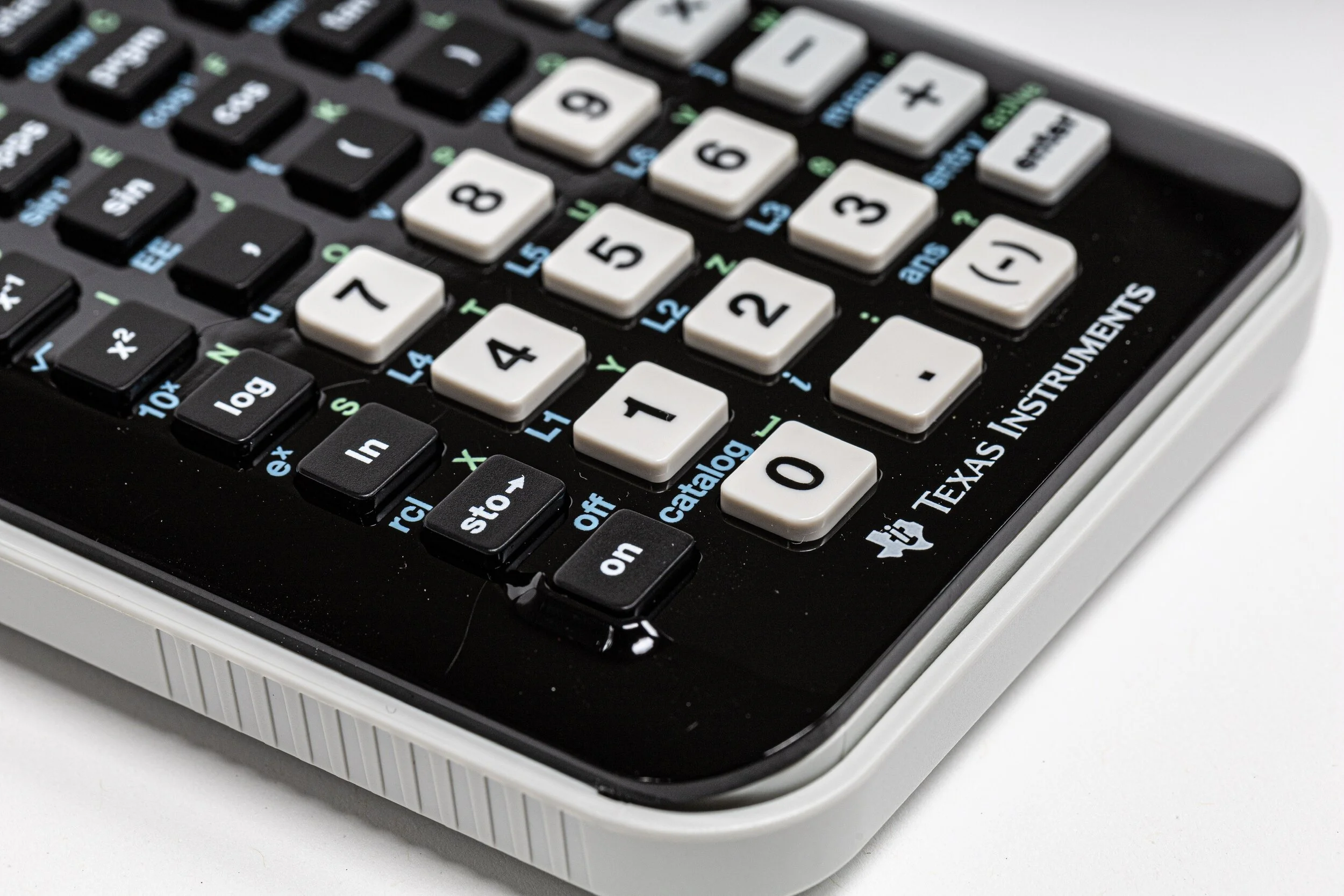Raise Your SAT and ACT Score with Calculator Tips and Tricks
Although it’s probably the last thing on your mind as you prepare for the SAT or ACT, your calculator can play an important role in your test-taking abilities. We know you're busy with, you know, actually studying for the test, so we've compiled a list of the seven best calculator-related tips you'll need to go confidently into test day.
First and foremost, confirm that the calculator you want to use for the test is approved by the College Board. If your calculator does not follow their guidelines, it will be confiscated for the entirety of the test. A calculator you can’t use won’t help you! To read through the rules and regulations regarding calculators, visit the College Board website.
Charge your calculator the night before the test. Swap out batteries if you have to, because you definitely don't want your calculator dying on you during the test. (We recommend bringing a backup set of batteries, too, in case something wild happens the morning of). Sometimes, proctors will have a few spare calculators for students to borrow, but it's better to use your own (as we'll discuss later).
Make sure you remember to bring your calculator to the exam. As trivial as this sounds, you'd be surprised how easy it is to forget something so simple. That being said, your safest bet is to pack your calculator and other necessities in a bag the night before the test date.
When you sit down for your exam that morning, be sure to clear your RAM. This ensures that previously altered settings are reset to normal means, and that earlier work does not interfere with new calculations (this will also serve you well during the calculator check prior to the start of the test).
Speaking of maneuvering through your settings, you should make sure you know your calculator. Have you been using it to study? Do you know where to find certain symbols? We suggest using a scientific calculator with which you've had consistent prior experience. Whether you're completing chemistry homework or taking a practice SAT exam, try to use the same calculator so you become familiar with the way it works.
When you're physically using your calculator and manually typing in characters, always be sure to double check your work. Did you type the numbers in correctly? Did you use the correct operation signs? Don't rely on your calculator to catch these minute mistakes-- there's still room for human error.
Finally, don't overdo it. If you know the answer to a problem or can solve it by other means, don't feel like you have to use your calculator. Remember that it's optional to use your calculator, and unless you're faced with a complex problem, chances are using it's just going to slow you down.
If you're still looking for more information regarding the SAT or ACT, please visit our homepage!

